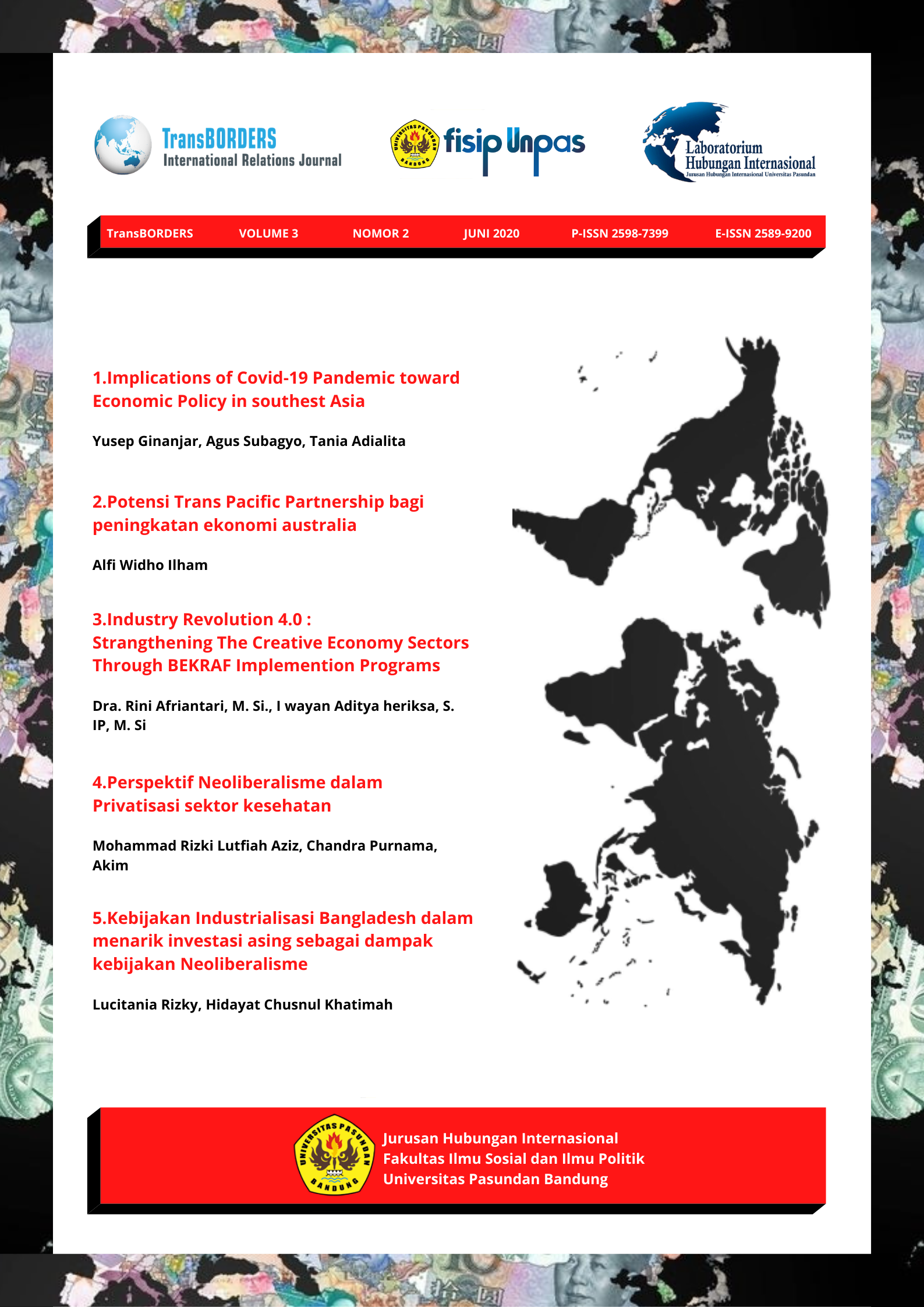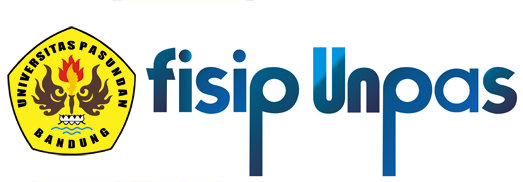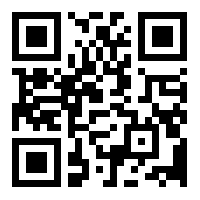Industry Revolution 4.0: Strengthening the Creative Economy Sectors through BEKRAF Implementation Programs
Industry Revolution 4.0; Creative Economy; BEKRAF
DOI:
https://doi.org/10.23969/transborders.v3i2.2188Abstract
President Joko Widodo or Jokowi has made a great leap in enhancing Indonesia’s Small Medium Enterprises (SME)s and the country’s overall creative industries by establishing a new non ministerial institution called Badan Ekonomi Kreatif (BEKRAF) or the Creative Economy Agency.
The BEKRAF, established under the Presidential Regulation Number 6 of 2015 issued on January 20, 2015, is responsible for accelerating the development of creative economy in Indonesia.
Small Medium Enterprises (SMEs) have been playing crucial roles for generating economic progresses as well as social inclusion in Indonesia. Among the most important and worthy of priority is the country’s creative economy. The existence of BEKRAF will enhance close cooperation between the government, SMEs players and related economic stakeholders.
This paper aims to assess the concept of “Creative Industries,” as a boundary concept that allows for increased co-operation between players and the generally opposing knowledge concepts—as reflected in their respective knowledge and cultural politics.
Indonesia has great potential in terms of economic growth. In 2015, Indonesia’s Gross Domestic Product (GDP) rocketed to 4.79 percent, far above the previous expectation of only 2.4 percent. This encouraging climate is indeed the right moment for the government to strengthen the country’s economic foundation particularly in the real economic sector. Hence, BEKRAF has a vision to build Indonesia as one of the world’s great economic powers in the field of creative economy by 2030. This issue will be discussed comprehensively in the final part of the paper.
Key words: BEKRAF, Creative Industries, Creative Economy
Downloads
Downloads
Published
Issue
Section
License

TransBorders: International Relations Journal is licensed under a Creative Commons Attribution-ShareAlike 4.0 International License
In order to be accepted and published by TransBorders: International Relations Journal, authors submitting the article manuscript should complete all the review stages. By submitting the manuscript, the author(s) agreed to the following terms:
- The copyright of received articles shall be assigned to TransBorders: International Relations Journal as the publisher of the journal. The intended copyright includes the right to publish articles in various forms (including reprints). TransBorders: International Relations Journal retains the publishing rights to the articles it publishes.
- Authors are permitted to disseminate a published article by sharing the link/DOI of the article at TransBorders: International Relations Journal. Authors are allowed to use their articles for any legal purposes deemed necessary without written permission from TransBorders: International Relations Journal, with an acknowledgement of initial publication to this journal.
- Users/public use of this website will be licensed to CC BY-SA (Attribution & ShareAlike).
















